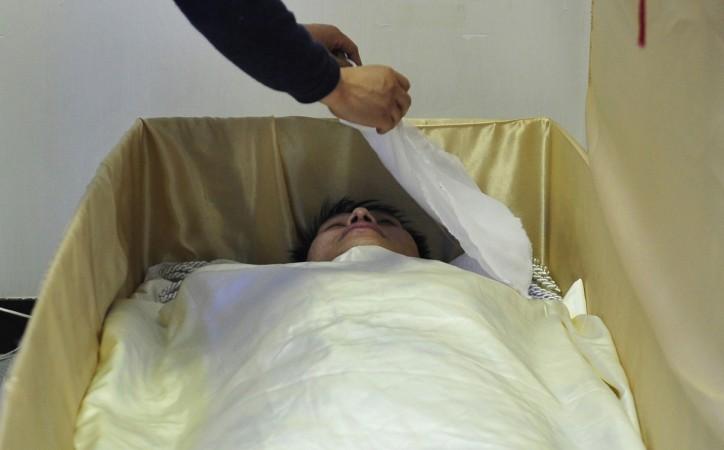
This unavoidable fact of life makes us ask questions like: What happens after death? Is there life after death? Is there heaven and hell?
A person is declared clinically death after his or her heart stops beating, and that's the time written on a death certificate. Some researchers have claimed the human brain may continue to function for a few seconds even after the heart stops beating, especially when cardiopulmonary resuscitation (CPR) is performed. But the ultimate conclusion is "nothing exists after brain death."
Also read: Is there heaven and hell? THIS is what people who had near death experience have to say
However, accounts of people who have had near death experiences (NDEs) have hinted at a possible existence of life after death.
Most of them said they went through some sort of profound experience, like seeing their own body, experiencing extreme happiness, seeing their loved ones who are already dead, feeling scared and seeing a bright light at the end of a long tunnel before they come back to life.
But then, some may still argue that a clinically dead person could go through some kind of experience during the fleeting seconds before brain finally dies.
There may not be scientific proof of life after death, but almost all religions base their faith on it. This is what Christianity, Hinduism, Islam, Budhism and Judaism have to say on death:
Christianity
Christians strongly believe in life after death and that Jesus Christ conquered death through His resurrection. They believe those who lead a good life on Earth will go to heaven and those who commit sin will go to hell.
Catholics believe in the purgatory — a stage between heaven and hell — where souls of sinners get a chance to feel sorry for their wrongdoings and repent before the final judgement.
Hinduism
Hindus believe in the concept of samsara (reincarnation or rebirth), the belief that atman (spirit) of a person continues to live in another form, say a human being, an animal, a plant etc, and this new life depends on the life one lived in the previuous life.
They believe in karma (every action has its corresponding results) which determines the nature of rebirth. However, the ultimate goal is to break the cycle of reincarnation and attain moksha.
Islam
Muslims believe souls of human beings either go to Jannat (paradise) or to Jahannam (hell) based on one's actions on Earth. They believe everybody will go through the final judgment after death and that Allah (God) will punish the unrighteous by sending them to hell and reward the righteous with paradise.
They believe God will decide one's fate on the day of judgment according to his or her deeds on Earth.
Buddhism
Buddhists believe human beings continue to live after death with spirits being reincarnated into new bodies based on their past actions. They believe whatever happens in our lives is a result of karma – one action creating a new karma – and that we will be reborn in one of the six relams called heaven, hell, human beings, asura (demon), hungry ghost, or animal based on that principle.
They believe that reincarnation will continue till enlightenment is achieved but once that is reached, one will attain nirvana (incomprehensible peace or heaven).
Judaism
There is no specific belief among Jewish on life after death. Some believe a person spends a year in gehenna (purgatory) after death and their fate — either to be sent to paradise or back to the Earth called gilgul (Jewish term for reincarnation) — based on the daily kaddish (prayer) of the relatives during that time.
However, Judaism is actually about celebrating life, so it focuses more on life here and now than life after death. It says both the good and wicked ways of life have their consequences and it is refelected on quality of life one lives. The concept of afterlife is left to each individual's opinion.

















